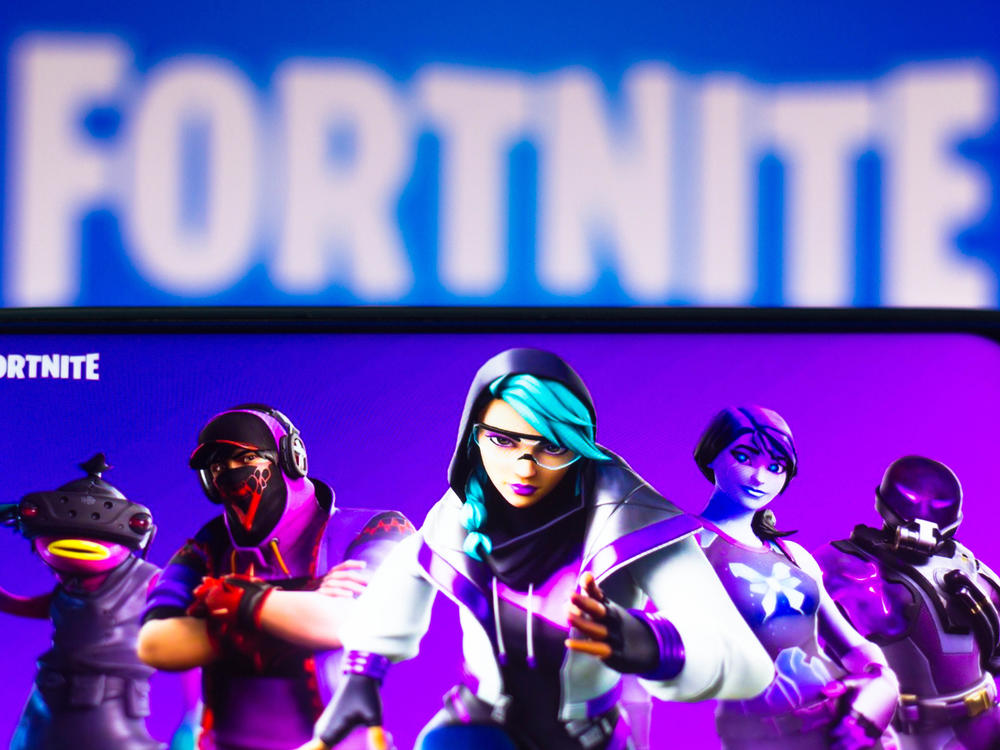Section Branding
Header Content
Sony and Lego are investing $2 billion in Epic Games, creator of Fortnite
Primary Content
Updated April 11, 2022 at 4:37 PM ET
Epic Games, creators of the wildly popular video game Fortnite, just got a $2 billion investment from legacy entertainment giants Sony Group Corp. and Kirkbi, the family-owned company behind The Lego Group. Sony and Kirkbi will each invest $1 billion in Epic.
Headquartered in Cary, N.C., Epic Games was founded by CEO Tim Sweeney in 1991. In addition to Fortnite, Epic developed the 3D game engine Unreal Engine. Today the company has some 40 offices around the world.
"This investment will accelerate our work to build the metaverse and create spaces where players can have fun with friends, brands can build creative and immersive experiences and creators can build a community and thrive," Sweeney says in a statement.
More simply put, the partnership of Lego and Epic will "build a fun place for kids to play in the metaverse!" as Epic tweeted when it announced a partnership with Lego a few days ago.
Jose Najarro, a contributing analyst at The Motley Fool who covers the tech and gaming industries, tells NPR the $2 billion investment "affirms that the metaverse has a future for the gaming community." He adds that it could also further Epic's game engine development: "Unreal Engine is a software tool to create and design video games, and could be an essential tool for creating the metaverse."
For Sony the investment will advance its "development of new digital fan experiences in sports and our virtual production initiatives," says Kenichiro Yoshida, Chairman, president and CEO of Sony Group Corp.
Najarro says Epic's main competitors, Unity Software and Roblox, will face a competitor with more money and greater resources: "The partnership with Sony and Lego could provide Epic Games with other forms of assets (trademarks, digital products, physical products)."
At the same time Najarro figures "this is more of an upside for gamers and consumers as it brings more competition into this evolving technology, forcing companies to accelerate their growth and innovations."
Copyright 2022 NPR. To see more, visit https://www.npr.org.
Bottom Content

